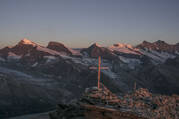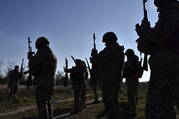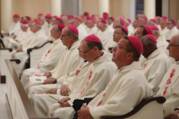Loading...
Click here if you don’t see subscription options
Click here if you don’t see subscription options

FaithFaith and Reason
“Laudato Si’” and its implementation seem to have stalled in the church. We need to revivify our efforts—and to recognize the Christological perspectives of our care for creation and our common home.

Politics & SocietyThe Weekly Dispatch
Around the affluent world, new hostility, resentment and anxiety has been directed at immigrant populations that are emerging as preferred scapegoats for all manner of political and socio-economic shortcomings.

Politics & SocietyVatican Dispatch
“Each day is becoming more difficult, but we do not surrender,” Father Igor Boyko, 48, the rector of the Greek Catholic seminary in Lviv, told Gerard O’Connell. “To surrender means we are finished.”

Politics & SocietyDispatches
Many have questioned how so many Latinos could support a candidate like DonaldTrump, who promised restrictive immigration policies. “And the answer is that, of course, Latinos are complicated people.”

FaithVantage Point
In 1984, then-associate editor Thomas J. Reese, S.J., explained in depth how bishops are selected—from the initial vetting process to final confirmation by the pope and the bishop himself.

FaithSynod Diary
An exclusive conversation with Father James Martin, Gerard O’Connell, Colleen Dulle and Sebastian Gomes about the future of synodality in the U.S. church

FaithThe Good Word
A Homily for the Solemnity of Our Lord Jesus Christ, King of the Universe, by Father Terrance Klein

FaithNews Analysis
Pope Francis’ doctrinal chief faced criticism for synod delegates over his office’s lack of diversity, clear communication and transparency when it comes to the question of women deacons.

Faith
A transcript prepared by America Media sheds light on the meeting between Cardinal Fernández and synod participants held on Oct. 24.

FaithVatican Dispatch
For Pope Francis, Matteo Ricci is not so much a figure of the past but rather “a prophetic figure” who nourishes the hope of encounter today—in China and around the world.
